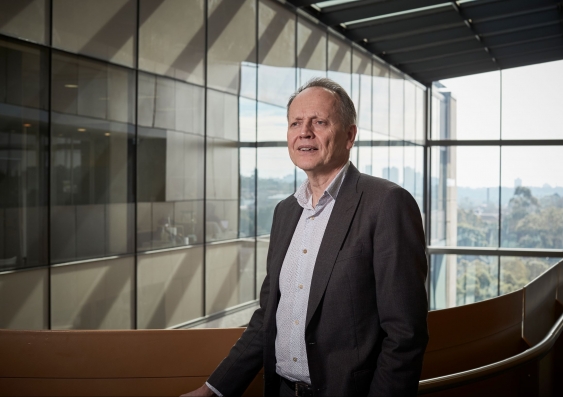Eureka Prize awarded to leading infectious diseases researcher
Professor Gregory Dore’s world-leading research on antiviral therapy for hepatitis C virus (HCV) was recognised last night at the 2020 Australian Museum Eureka Awards.
Winning the Australian Infectious Diseases Research Centre Eureka Prize, Prof. Dore was acknowledged for his immense contribution to the health of people who use drugs, through his research that increases access to therapy for hepatitis C.
“It is an incredible honour to win this Eureka Prize,” Prof. Dore said. “When I established the hepatitis C clinic at St Vincent’s Hospital in 1999, the guidelines at the time required one year of drug abstinence prior to initiating treatment. That denial of right to health care, which was ignored, has driven my research at the Kirby Institute ever since.
“Although this is an individual award, our fabulous team in the Viral Hepatitis Clinical Research Program is what drives the research and makes it so enjoyable. I am also incredibly appreciative for the partnership, support and trust of Australia’s hepatitis C affected communities, particularly people who inject drugs.”
Hepatitis C virus is a major global health challenge. Direct-acting antiviral therapy for HCV has been successful, however, the group most impacted by the disease, people who use drugs, has often largely excluded from accessing it. This is due to perceived likely poor adherence and risk of HCV reinfection.
Prof. Dore has led several clinical trials of direct-acting antiviral therapy evaluation on people who inject drugs. The key benefit of his research is that it has driven equitable provision of the antivirals to this group of people in Australia, which is crucial for HCV elimination efforts.
Prof. Dore’s research findings have been included in major international HCV management guidelines and have driven advocacy to enable people who inject drugs to access the antiviral therapy. His research has impacted the attitudes and practices of many clinicians involved in HCV management, evident through increased antiviral treatment in this group.
“Australia is an international leader in HCV elimination. The evidence of HCV elimination progress for people who inject drugs and the broader Australian HCV population through a community-centred approach is crucial to driving enhanced investment and strategy development for global HCV elimination,” Prof. Dore said.

